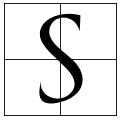Member-only story
Linguistic Detective Work
What can language tell us about history?
 Suppose you needed to figure out where English speakers originally came from, but you knew absolutely nothing about European or American history and had no access to a book or any other written source (a strange hypothetical, I know). How could you do it?
Suppose you needed to figure out where English speakers originally came from, but you knew absolutely nothing about European or American history and had no access to a book or any other written source (a strange hypothetical, I know). How could you do it?
You might simply start with the part of the world where most English-speakers are found, reasoning that’d be the place where the language was spoken for the longest. This would lead to assume that the English language comes from North America. Perhaps, you might reason, English was first spoken in New York City and spread through the world from there. But there are three clues buried in the language which tell you that you’d be wrong.
The first is where related languages are spoken. There are a lot of French and Spanish speakers in North America, and their languages are clearly related to English. You can even tell from place-names in and around New York City — like Harlem, Brooklyn, and Nassau — that the people there once spoke Dutch, a Germanic language even more closely related to English than French or Spanish. But only in northern and western Europe will you find all the languages in the Germanic family — English, Dutch, German, Danish, Swedish, Norwegian, Icelandic, and other smaller dialects. This is a big hint that English…